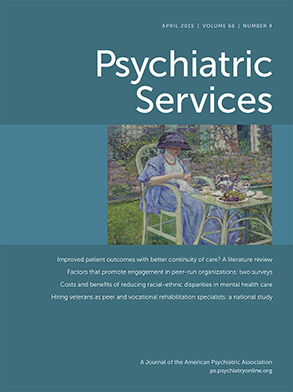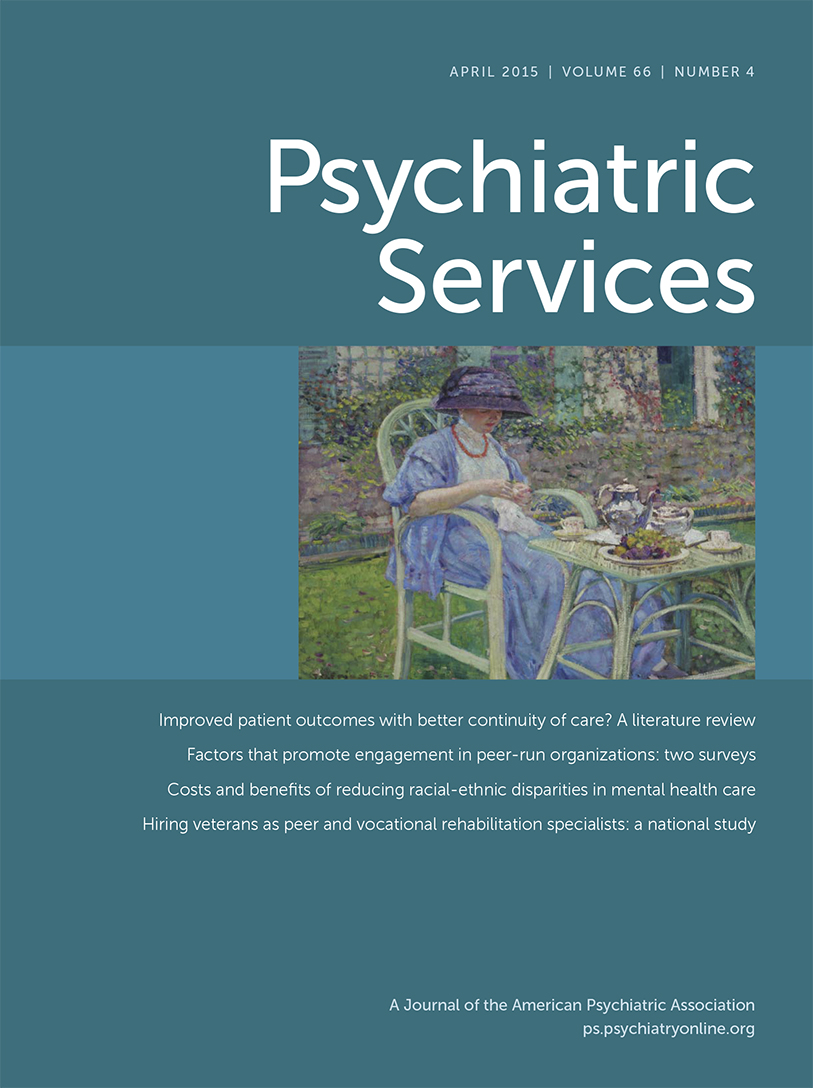TO THE EDITOR: Cigarette smoking is the leading preventable cause of mortality in the United States, and most psychiatric hospitals are now smoke free (
1). The American Psychiatric Association (APA) recommends use of nicotine replacement therapy (NRT) to manage nicotine withdrawal in the hospital (
2), but there are few reports about how this recommendation has been implemented. We report on the smoking status and smoking cessation treatment received by all patients (N=392) admitted during April 2014 to the general adult inpatient units of a 330-bed, not-for-profit psychiatric hospital in Maryland. Data were collected from electronic medical records. The study was approved by the hospital’s institutional review board.
At admission, 194 patients (49%) reported that they were smokers. Smokers were more likely to be male (χ2=7.96, df=1, p=.005), to be older (F=5.12, df=1 and 391, p=.02), to have a diagnosis of a co-occurring substance use disorder (χ2=85.7, df=1, p<.001), to have less education (F=13.3, df=1 and 391, p<.001), and to be unemployed (χ2=9.3, df=2, p=.009). A regression analysis indicated that patients with a co-occurring substance use diagnosis (excluding nicotine or caffeine) were 7.6 times (95% confidence interval=4.6–12.6) more likely than patients without this diagnosis to be smokers.
Of the 194 smokers, 76% (N=148) indicated that they were interested in quitting, and of these, 72% (N=107) said that they would like to pursue quitting after hospital discharge. Proportionately more females than males were interested in quitting (χ2=7.0, df=1, p=.008). Among smokers, 38 (20%) were given a diagnosis of nicotine dependence. A total of 183 smokers (94%) were prescribed NRT, and 164 (85%) used NRT during their stay. NRT options were the inhaler, patch, and gum, and 45 smokers (23%) were prescribed more than one type. The most commonly prescribed form was the inhaler, prescribed to 166 and used by 143 smokers, followed by the patch, prescribed to 48 smokers, and then gum.
On discharge, 28 smokers (14%) were provided with a formal smoking cessation recommendation, the most common of which was a bupropion prescription (N=13 of 28, 46%). The second most common was referral to the Maryland Quitline (N=12 of 28, 43%).
In conclusion, we found that almost half of all hospitalized patients reported being smokers, a prevalence much higher than in the local general population (
3). In contrast to previous studies (
4), our study did not find that individuals with schizophrenia were disproportionately represented among smokers. The co-occurrence of a substance use disorder was the strongest predictor of smoking. Even though a minority of smokers had a diagnosis of nicotine dependence, the vast majority used NRT during the inpatient stay, consistent with APA recommendations, and a higher proportion than in a recent study (
5).
Provision of smoking cessation guidance at discharge was limited, suggesting that treatment of nicotine dependence was not seen as a priority. However, a large proportion of patients expressed an interest in quitting, and their admission to a smoke-free hospital provided an opportunity to introduce smoking cessation treatment. More hospitals should use this opportunity to help patients quit smoking.

